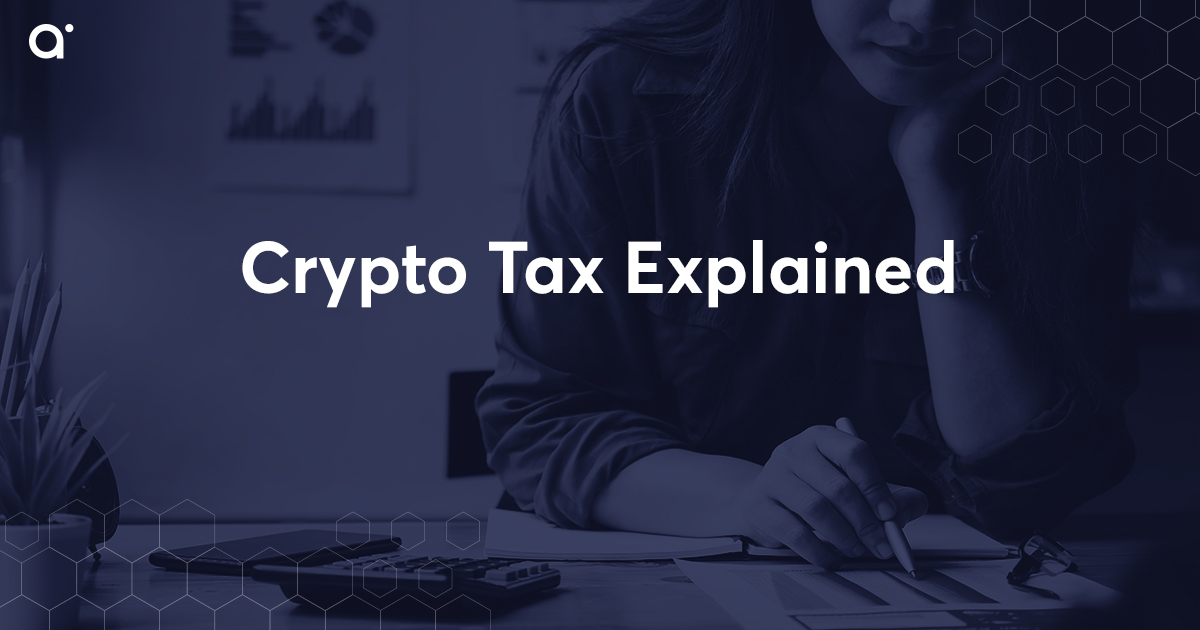Crypto Tax Explained
- 5 minute read

Is it mandatory to pay tax on your cryptocurrencies? Cryptocurrencies are made with the thought to exclude central authorities from the process. But unfortunately, you must pay taxes on your crypto in many countries. Especially in this time, when more and more countries are getting involved in the crypto market, there is a good chance that the rules will change. In this blog we will explain the legislation about cryptocurrencies in the Netherlands, Germany and the United Kingdom.

In most of the countries over the world long-term investors will pay less taxes than active short-term traders. For example, the HODL assets often fall within the savings or total assets of individuals. The active traders (also known as day traders and scalpers) are more likely to pay taxes on their profit, because this often will be recognized as primary income. The biggest difference between the rules is in the cap limit and the tax rates. As a crypto trader you must adapt to these rules, so you can have an advantage. Make sure you are aware of the rules in your country. Because in some countries you will receive a big fine, if you don’t provide the correct information on your crypto.
Before we get started on the legislation, we have some hints regarding to paying taxes:
- Make an overview of all the transactions you did in that year, so you can easily look back when and what you bought or sold. In some countries they can request their citizens to show to prove your ownings;
- It is important that you also appoint your losses. If trading in crypto falls within your income, you can deduct your total income with these losses. This will result in less income, so less taxes.
- To avoid unnecessary mistakes, keep posted on the regulations in your country.
Crypto taxes in the Netherlands
As a citizen of the Netherlands, you pay taxes on your assets. This is divided into three boxes, from which two are relevant to crypto taxes.
Box 1: Taxable income from work and home
All the income you receive as a compensation for work falls under box 1. As a crypto trader you will belong in this when trading is a daytime activity, and you make a living from it. It is possible, you’re your salary is paid with cryptocurrencies. The amount of taxes you pay depends on the value in euros of the currency the day you received the salary. Depending on the amount of your income, you get a tax rate. The more you earn, the more you pay. Under the age of 66 years and 7 months your tax rate in 2022 will be:
| Taxable income | Rate |
| Up to € 69,399 | 37.07% |
| From € 69.399 | 49.50% |
The Dutch government allows people to mine cryptocurrencies without the obligation to pay taxes on the income. But whenever you make profit on mining, you do. Because this activity is considered difficult to make profit on it. So, when you provide an income from this activity, you must pay taxes on your profits in box 1.
Box 3: Taxable income from savings and investments
1 January 0:00 is considered as a fixed moment, that determines the value of your crypto savings and investments. Whatever the price does after this moment, doesn’t care. You must pay taxes on your total assets (assets minus debts), but only if it is worth above € 50,650. If this is the case for you, taxes must be paid with the following rates:
| Bracket | Your taxable total assets | Rate -0,01% | Rate 5,53% |
| 1 | Up to € 50.651 | 67% | 33% |
| 2 | From € 50.651 until € 962.351 | 21% | 79% |
| 3 | Upward of € 962.351 | 0% | 100% |
Crypto taxes Germany
Investing your money in cryptocurrencies when you live in Germany isn’t a bad idea. Some people say Germany is one of the Crypto tax havens in the world. It gets this name because you don’t pay a single penny in taxes whenever you hold your investments longer than one year. This makes it very appealing to HODL your crypto coins. Even if you have owned a coin for less than 1 year, you only pay taxes when the profit of this trade is above 600 euros. But there is one exception: if your total income (not only crypto profits) stays below € 9.984, you don’t have to pay taxes at all. If this is not the case, then you pay the following rates:
| (Taxable) income | Rate |
| Up to € 9.984 | 0% |
| From € 9.984 until €14.926 | 14% - 24% |
| From € 14.927 until € 58.596 | 24% - 42% |
| From € 58.597 until € 277.825 | 42% |
| Upward of € 277.826 | 45% |
Germans’ exchanges work with two systems which you must adapt in your crypto account: FIFO or LIFO. With the FIFO (First-In-First-Out) method you can only sell the oldest coin you own. LIFO is the opposite method, in which you have to sell the coin which you recently added into your wallet. So your long term investments should be your first, so you can leave them the longest. This is what makes it more attractive for long term traders, you can even trade with other coins while leaving the long-term coin in the back of your wallet.
Crypto taxes in the United Kingdom
In the UK, cryptocurrencies are seen as assets. Unlikely to the Netherlands and Germany, you always pay taxes as an HODLer. When you sell your holdings, you must pay taxes on your profit, which varies between 10% or 20%. The tax rate depends on the tax bracket you belong in. As an active crypto trader, you pay income taxes when your total net income is above £ 12,500. The total net income consists of your profit minus losses from cryptocurrencies and the profit of other resources outside of digital assets.
Conclusion
Most countries do actually tax you on trading in cryptocurrencies. Due to the rapid development of the crypto market, there is a good chance that the legislation will continue to change over the years. Always make sure to be aware of the rules in your country. Put all crypto transactions in one sheet and avoid hefty fines by passing on the correct information to the tax authorities. If crypto taxes excite you or you are looking for the ‘Crypto Tax Havens’ in the world, you should check out this video:


